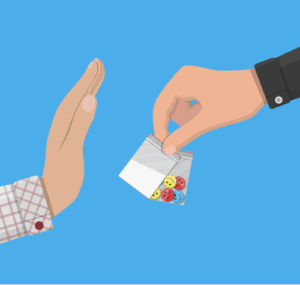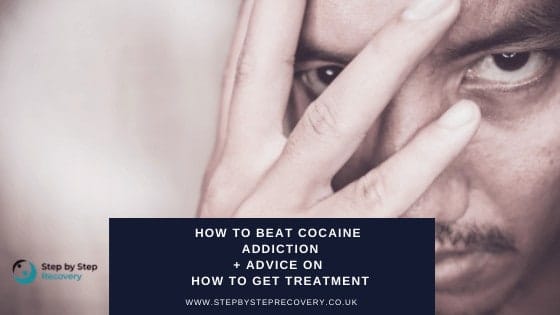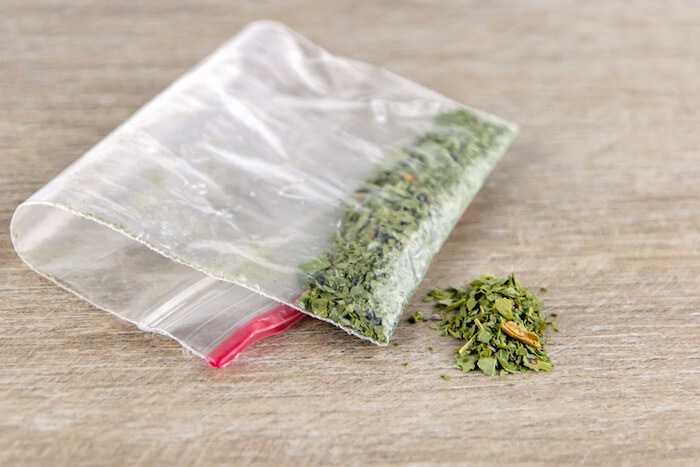Cocaine, also known as ‘coke’ or ‘sniff’ is one of the most abused illegal substances available today. Its highly addictive properties mean that getting clean isn’t always as straightforward as ‘just stopping’.
Why is cocaine so addictive?
Cocaine works by stimulating the brain’s reward receptors causing a surge of the chemical, dopamine. Dopamine is responsible for producing feelings of happiness and positivity, and the level created by a cocaine hit cannot be created by the body. However, a cocaine high is incredibly short-lived, and while it creates so much dopamine in such a short space of time, it also blocks dopamine maintenance. This is ultimately what leads to users craving more as soon as the high wears off.
Cocaine is classed as a stimulant, however, its ability to prevent organic feelings of happiness and pleasure means that, over time, it can lead to depression. Ongoing cocaine abuse can develop into severe addiction, as the brain gradually becomes accustomed to the presence of these chemicals to function normally. At this stage, the brain relies heavily on cocaine to produce feelings of happiness in addition to escaping any depressed or negative feelings which have manifested as a result of prolonged use.
There are several ways to stop cocaine and/or crack cocaine addiction, however, acknowledging the problem is the first step towards recovery. Many people choose to remain in denial about cocaine addiction but doing so can have devastating consequences. Without addressing the issue and seeking help, you are highly likely to face ongoing difficulties with your mental health as well as cognitive functions.

How to detox from cocaine
Although the physical aspect of a cocaine detox isn’t as severe as withdrawal from other substances, it can still be unpleasant to anyone experiencing it. The symptoms of cocaine withdrawal are predominantly psychological and can cause intense cravings for the drug, which often leads to relapse. To reduce the risk of harm, it is generally advised that detox be completed at an inpatient rehab facility where it can be medically supervised.
A cocaine detox involves completely stopping all use of the drug, rather than substituting it with prescribed medication and gradually tapering the dose, which happens in the case of heroin detox. As your body tries to adjust without the presence of cocaine, you may experience feelings of restlessness, anxiety, depression and, in severe cases, suicidal thoughts or action. Therefore, an inpatient clinic provides you with access to around-the-clock care and medication to alleviate the symptoms of withdrawal and make you as comfortable as possible during this stage of recovery.
How long does cocaine withdrawal last?
Although there are rarely any agonising physical symptoms to deal with when it comes to cocaine withdrawal, there are various emotional and mental disturbances that can make the process extremely difficult for those who have no support or treatment. Once these withdrawal symptoms begin you may be anxious to know how long it will take, and understandably so. However, it’s important to understand that the experience will differ for everyone and will ultimately depend on factors such as duration of use and general health.
The timeline of cocaine withdrawal is generally split into three stages:
The first stage is known as the ‘crash’, also referred to as ‘dysphoria’. During this phase of the withdrawal process, it’s common to experience psychological turmoil such as severe depression together with strong cravings for cocaine. This tends to occur around twenty-four hours after last use.
The second stage is the withdrawal phase. While you may start to feel better physically your cravings for cocaine can be overwhelming during this time. Due to the high potential for relapse, and possibly even overdose during this stage, it’s always advised not to detox from cocaine alone. Even if you’re not undergoing treatment in a rehab facility, it is recommended you have someone with you to ensure your safety and wellbeing. As your brain is no longer producing dopamine by itself, you may also struggle to feel pleasure and may notice that you are unable to become sexually aroused.
The third stage of withdrawal is known as extinction, and by this phase, the obvious withdrawal symptoms have long subsided. However, certain symptoms such as depression, anxiety and cocaine cravings can continue for up to six months.
How to stop using cocaine
Cocaine addiction is a complex disease that could have terrible consequences if left untreated. Many people delay seeking help for many reasons. It may be because they’re unsure about what kind of treatment they need and where to get it. Others might be in denial about the true nature of their cocaine use and may not believe it to be serious enough. In any case, it can be difficult to come to terms with the fact that your cocaine use has spiralled out of control, but it is crucial to get help sooner rather than later.

how to Get treatment to beat cocaine
Cocaine addiction is typically treated with a combination of detox and therapy. Drug Detox treatment addresses the physical element of the illness and, if you choose an inpatient facility for your treatment, you will be given medications to help you cope with the discomfort of cocaine withdrawal.
Once you have completed your detox, you will need to begin addressing the psychological aspects of addiction. Most rehab clinics create a personalised rehab treatment programme involving different types of therapies designed to help you deal with triggers and prevent relapse.
Most rehab programmes include a combination of traditional and holistic therapies. This helps to provide a whole-person approach to recovery and focuses on healing the mind, body and spirit as a collective.
1. Address the underlying causes
Despite the negative connotations often associated with cocaine users, it’s important to know that people don’t use cocaine to become addicted. Most addictions stem from an underlying issue such as a co-occurring mental health disorder or trauma. Some people may even have a predisposition to addiction as a result of their environment or genetics, while, for others, substance misuse becomes a form of self-medication and comfort.
Cocaine addiction is impossible to overcome without first attempting to understand what led you to abuse cocaine in the first place. Simply stopping cocaine is not enough to combat the psychological aspects of addiction and may result in you substituting one substance for another when you find yourself struggling.
Seeing an addiction counsellor or therapist will help you explore possible contributors to your addiction and provide you with the tools you need to deal with them.
Find about more about cocaine addiction in this page.
2. Change your habits
Certain scenes or social settings are well known for prevalent cocaine use. To increase your chances of staying clean you may need to step away from these circles.
Mixing cocaine and alcohol is extremely common with alcohol being a huge trigger for many when it comes to substance misuse. If you’ve noticed that you tend to use cocaine whenever you drink, then you may want to seriously consider staying away from alcohol. If you have developed an alcohol addiction, then this will need to be treated appropriately. Alcohol addiction should not be overlooked and stopping suddenly can lead to dangerous withdrawal symptoms.
The recovery journey truly begins once you complete treatment, so you must put some thought into how you will maintain your sobriety once you complete your treatment. Falling back into similar patterns and behaviours only increases the risk of using cocaine. Incorporating some of the following activities into your lifestyle is a great way to form new, healthier habits:
- Increasing physical exercise and improving diet
- Taking up new hobbies and sports
- Practicing self-care
- Seeing an addiction counsellor/therapist regularly

3. Stay connected
Addiction and isolation go hand in hand and disconnecting from family and friends can have significant consequences on a person’s mental and emotional health. If you’re recovering from addiction, social isolation has been known to trigger a relapse. Speaking to others who have experienced addiction is a great way to stay focused on your recovery. Hearing success stories can provide great strength and motivation when it comes to staying clean.
Ultimately, everyone’s experience with cocaine addiction will differ. What works for one person may not necessarily be so effective in helping someone else stop using cocaine.
Support groups such as Cocaine Anonymous have been proven to increase the chances of staying drug-free. These groups offer peer support for anyone who wants to live a life free from cocaine and all other mind-altering substances, including alcohol. This programme is built on the 12-step recovery approach also used in Alcoholics Anonymous. A support group such as Cocaine Anonymous can be particularly helpful to help preserve the abstinence achieved during treatment. Find information about Cocaine Anonymous in the UK here
Contact us for further advice and help to overcome an addiction here
Page revised in March 2023, by Danielle Byatt, a Level 4 addictions counselling, Level 5 in Leadership & Management, BA applied social work. and Treatment Director at Step by Step Recovery.




